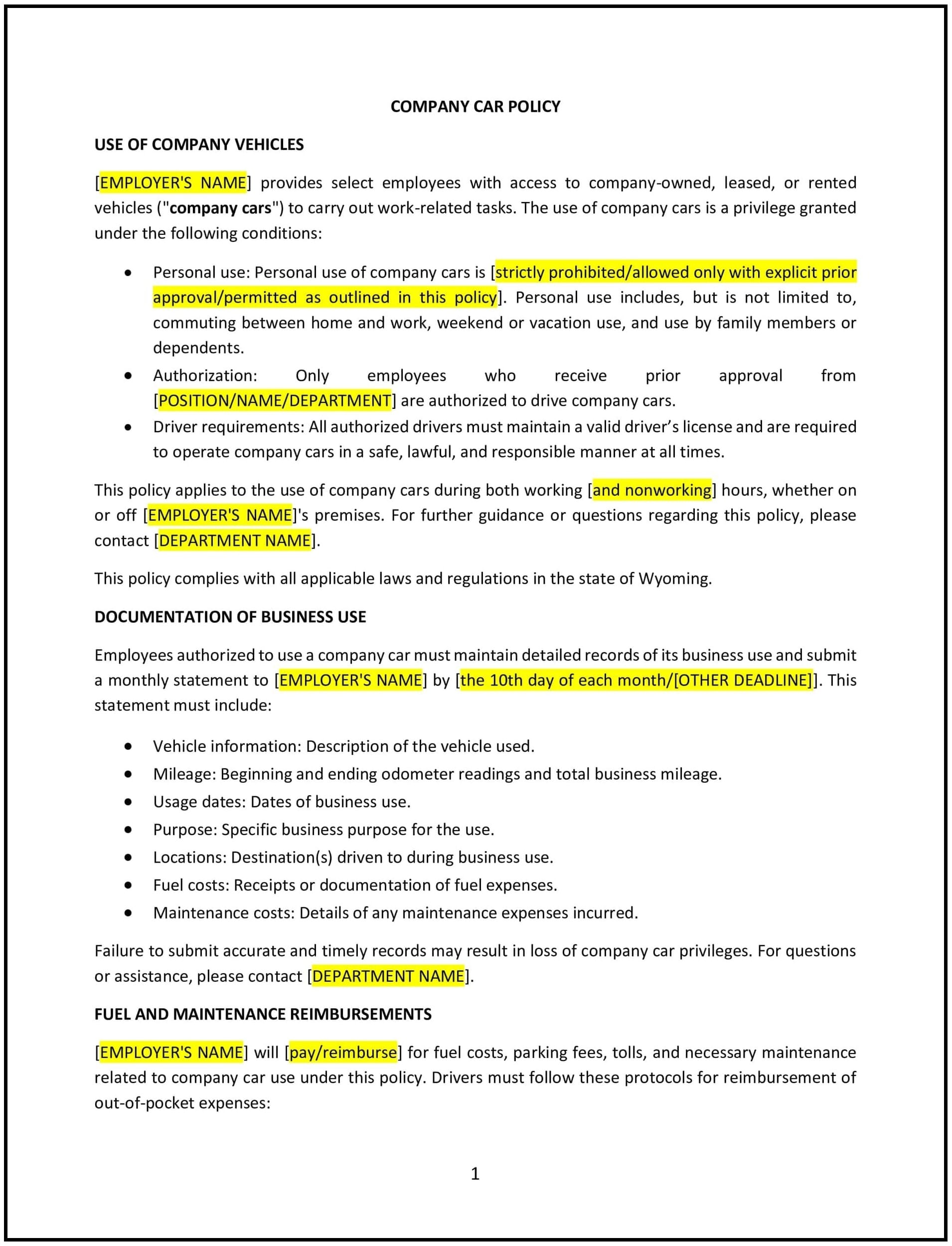Got contracts to review? While you're here for policies, let Cobrief make contract review effortless—start your free review now.

Customize this template for free
Company car policy (Wyoming)
In Wyoming, a company car policy provides businesses with clear guidelines for the use and management of vehicles provided to employees. This policy is particularly important for organizations operating in industries such as energy, agriculture, and construction, where company vehicles are often essential for day-to-day operations across rural and remote locations.
This policy outlines the eligibility criteria, acceptable use, maintenance responsibilities, and procedures for managing company-provided vehicles, ensuring efficiency, safety, and compliance with state laws.
How to use this company car policy (Wyoming)
- Define eligibility: Specify which employees are eligible for company vehicles based on their job roles, such as field staff or sales representatives. Include criteria for ongoing use, such as performance or role requirements.
- Establish acceptable use guidelines: Provide clear rules for the use of company vehicles, including restrictions on personal use, adherence to traffic laws, and the prohibition of unauthorized drivers.
- Clarify maintenance responsibilities: Outline who is responsible for maintaining the vehicle, including scheduling routine maintenance and addressing repairs. Specify whether employees are required to report any issues immediately.
- Address accident reporting procedures: Include steps for employees to follow in the event of an accident, such as notifying their supervisor, contacting authorities, and filing an insurance claim.
- Ensure compliance with Wyoming laws: Align the policy with Wyoming’s specific traffic and vehicle laws, including licensing and insurance requirements.
Benefits of using a company car policy (Wyoming)
A well-crafted company car policy provides numerous benefits for Wyoming businesses:
- Promotes safety: Supports responsible employee use of company vehicles, reducing the risk of accidents or misuse.
- Supports compliance: Aligns with Wyoming’s legal requirements for vehicle use, insurance, and reporting.
- Improves operational efficiency: Provides employees with clear expectations, minimizing downtime and ensuring vehicles are used effectively.
- Reduces costs: Establishes guidelines for maintenance and fuel use, helping businesses manage expenses associated with company vehicles.
- Adapts to local needs: Addresses the unique challenges of operating vehicles in Wyoming’s rural and remote areas, such as weather conditions and long travel distances.
Tips for using a company car policy (Wyoming)
- Adapt for rural travel: Include specific guidance for long-distance travel or driving in Wyoming’s remote areas, such as carrying emergency supplies or checking weather conditions.
- Monitor vehicle use: Implement systems for tracking mileage and fuel expenses to ensure vehicles are used efficiently.
- Provide training: Offer safety training for employees who use company vehicles, especially for industries that require frequent driving.
- Review regularly: Update the policy periodically to reflect changes in state laws, company needs, or vehicle technology.
- Encourage employee accountability: Reinforce the importance of responsible vehicle use through regular communication and performance reviews.